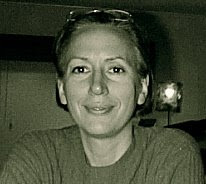I was given the weekend off to settle in, and so I've decided to put my time to good use. Right before I left I went to see a documentary on Betty Makoni's work with girls who have been raped to "cure" HIV/AIDS (a must see film - more on that in a later post). While there I bumped into Anne Firth Murray, one of the founders of the Global Fund for Women, and the author of Paradigm Found. I wanted to share some of the insights she provided as I told her what I was about to do.
First of all, Anne is an amazing person, as anyone familiar with her knows. I told her about MoMo and that I was leaving for Africa the next day. She gave me a number of suggestions for funding, but then looked at me and said that she was not sure she could support the idea of MoMo because it was perpetuating the institutional model of orphanages. This was a profound moment for me because I had been doing a lot of thinking along these lines for many years, but wasn't sure how to go about changing the way orphanages are run.
Some background is vital at this juncture. Children, particularly babies, need 1:1 care and support that's always available to them, and totally reliable. This is how we learn to bond with others, to trust and ultimately to love. This 1:1 care does not have to be a biological parent, just someone that responds to their needs - holds the baby so it can hear / feel the caregiver's heartbeat, and maintains eye contact in a loving manner.
Basically, the brain has to feel that another human being is there for them - and it needs to feel it repeatedly as a baby / child to avoid the total human catastrophe of an attachment disorder. Many, but not all, children that live in orphanages develop attachment disorders to varying degrees. Later in life they write poetry that talks about how they feel like an island in the world, alone and detached; it's a tragedy that can easily be avoided. Unfortunately, most orphanages don't understand the importance of consistent care and 1:1 attention.
About 5 years ago my friend Rebel Rice pointed me in the direction of an organization based in Berkeley, California that works in China called Half the Sky. This group has been on my mind for some time - ttp://www.halfthesky.org/work/ourprograms.php. They have developed programs that employ women from the villages to serve as consistent caregivers - around the clock - their approach provides the love and support that a child would get in most circumstances.
So, you see, Anne hit a vital nerve. Yes, MoMo helps orphanages to start businesses to decrease reliance on outside funding sources, but can MoMo also change the way we take care of the children until they are adopted?
Something to ponder.
A final thought - and that is that adoption is, of course, the best solution to the orphanage situation. I am a firm believer that all the children in the world are OUR children and that if we don't take care of them, who will? As you may know, many children are not adopted.
I invite insights and comments.
Subscribe to:
Post Comments (Atom)

Danusia, thank you for your thoughtful consideration of the issues about orphanages, both pro and con. Whatever the right model is for caring for babies and children who lack parents, you're helping raise our consciousness about the importance of 1:1.
ReplyDeleteI think that's right on. And if MoMo can help orphanages provide 1:1 care while becoming more economically self-sufficient (and ultimately sustainable), then perhaps MoMo has helped solve the inherent problem in orphanages as institutions.
I'm looking forward to your blogs as your story unfolds. And am here to help with whatever you need.
BTW, your buddy Axl is laying right next to me on a big, round, poofy bed that's clearly marked 'Drake's Bed.' That should come as no surprise.
Safe, exciting journey to you.
Also looking forward to reading as the story unfolds...and sending all the best thoughts possible for the journey.
ReplyDeleteA marvel.
Many blessings,
vicki
This is fantastic, keep up the great work (and blogging)!
ReplyDelete-E